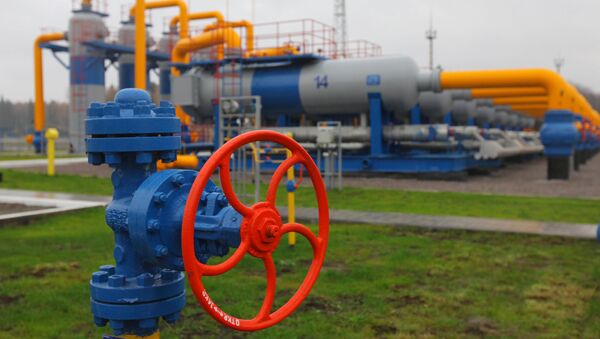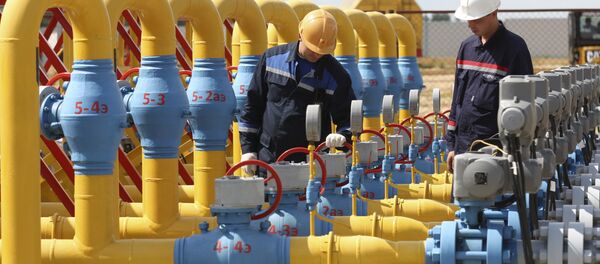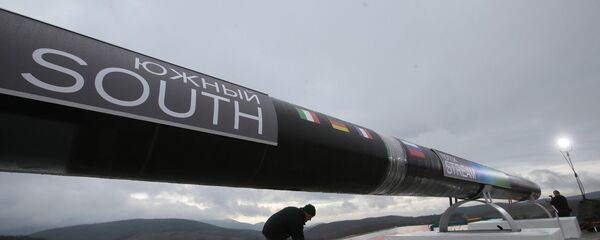"It is important that the businesses continue to cooperate, we cannot change the political climate, as much as we hope the political parties will do their utmost to end the armed conflict in Ukraine and to find a lasting solution to the problem, because that will also help the energy market," Raabe said on the sidelines of the Russian Gas Forum.
Raabe also expressed hope that Moscow and Kiev would stick to the October agreement on Russian gas supplies to Ukraine during the winter period.
"At the moment we are hoping that the transit will continue through Ukraine, and both the Russian Federation, and Ukraine, and the companies involved will stick to the agreement that was reached in October, that we will first of all get through the winter, that the agreement of October will then be followed by an agreement beyond the month of March, so that we can continue gas supply in as normal a way as possible," Raabe added.
Russia's gas exporter Gazprom switched to a pre-payment scheme for the delivery of gas to Ukraine, after Naftogaz failed to pay off a $5-billion loan in June.
The already strained political relations between Russia and Europe, complicated by sanctions against Moscow due to its alleged involvement in Ukrainian internal affairs this year, received a new blow last weekend, when the South Stream pipeline project was called off.
The construction of South Stream was announced in 2012, with the pipeline's offshore section designed to go under the Black Sea, while its onshore section was to cross Bulgaria, Serbia, Hungary and Slovenia, bypassing Ukraine, and become fully operational by 2018.
The European Union repeatedly said that the project violated the bloc's Third Energy Package, according to which it is illegal to own a pipeline and produce the natural gas that flows through it at the same time. Moscow repeatedly said it saw no violation of the package's regulations.
"I don't think Europe will survive [without Russian gas], and I don't think there is a desirability for Europe to survive without Russian gas. If Russia turns away from the EU, this will accelerate the trend to come away from fossil fuels, because Russia also supplies oil to the European Union," she said.
Raabe stressed the importance of not letting political tensions compromise the existing close cooperation between Russian and EU energy businesses.
"The companies operating in the EU are not turning their back on Russia. We continue to see an important role for Russian gas in the EU energy mix, and we are encouraging the Russian side to help us reassure the EU customer that the supplies are secure," she said.
Europe currently relies on Russia for two-thirds of its natural gas needs.



